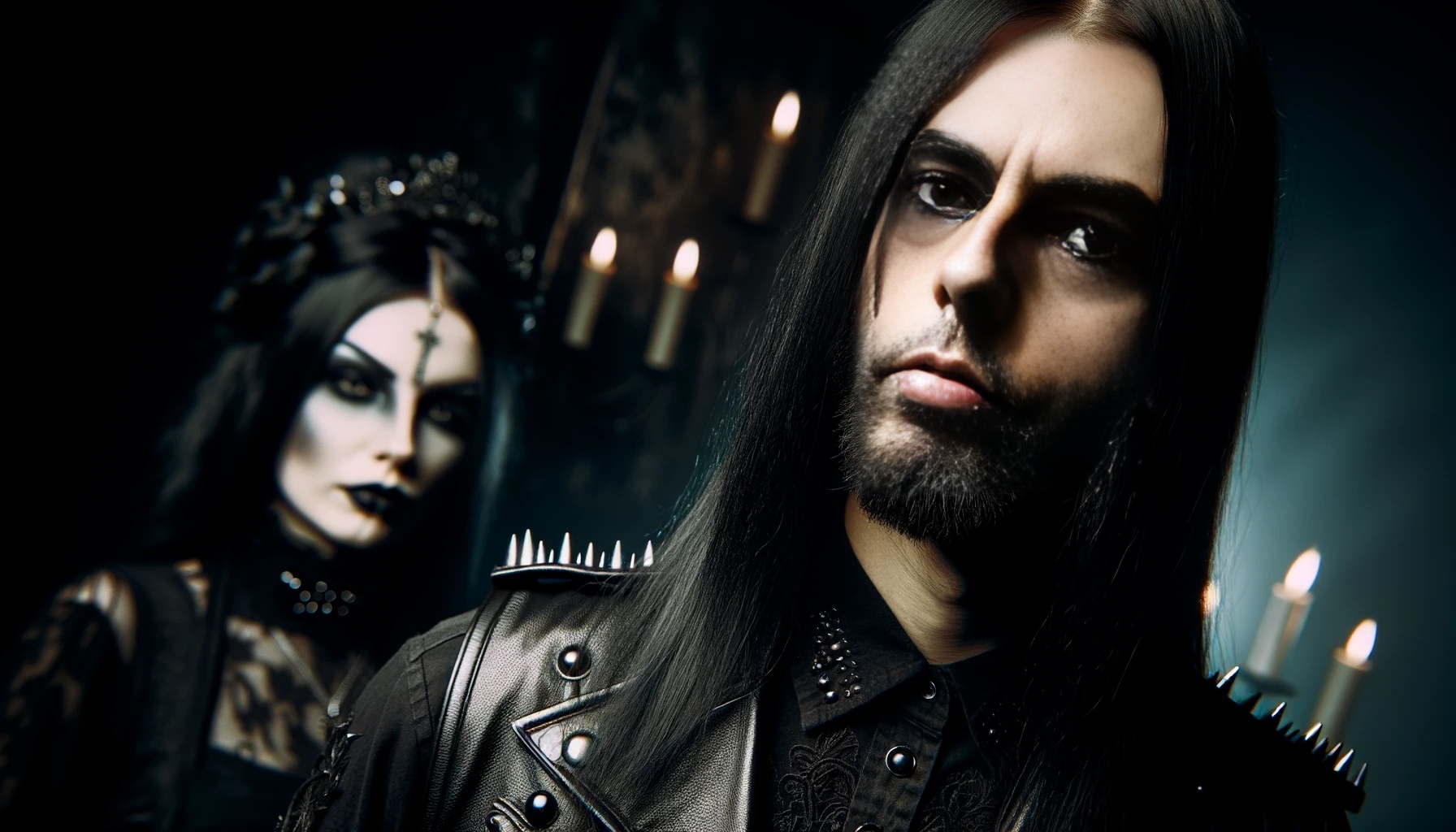In the age of digital algorithms and commodified rebellion, modern metal finds itself at a crossroads. Once a bastion of raw emotion, visceral energy, and unfiltered authenticity, the metal scene is now increasingly populated by bands that seem to prioritize marketability over meaning. This decline of authenticity in modern metal bands is not just a trend—it’s a crisis that threatens the very soul of a genre that was born out of defiance and truth.

The Rise of the Manufactured Metal Band
To understand the decline of authenticity in modern metal bands, we need to first examine the rise of the manufactured metal band. In the early days of metal, bands were formed in garages, basements, and grimy clubs. They were a product of their environment—reflecting the angst, anger, and disillusionment of youth who felt alienated by mainstream culture. Their sound was raw, their lyrics were real, and their image was a direct extension of who they were.
Fast forward to today, and we see a different picture. The rise of social media and streaming platforms has democratized music in many ways, but it has also led to the commodification of metal. Bands are no longer just bands—they are brands. Image consultants, marketing teams, and algorithms play a significant role in shaping their sound and image. This has given rise to a new breed of metal bands that are meticulously crafted to appeal to the widest possible audience. They tick all the right boxes—heavy riffs, screaming vocals, dark aesthetics—but something crucial is missing: authenticity.

The Death of Originality: Recycling Old Sounds
One of the most glaring symptoms of the decline of authenticity in modern metal bands is the death of originality. The metal scene was once a hotbed of innovation, constantly pushing the boundaries of what music could be. From the doom-laden riffs of Black Sabbath to the technical wizardry of Iron Maiden, from the ferocious speed of Slayer to the haunting atmospheres of early Norwegian black metal, each new wave of metal brought something fresh and exciting to the table.
But today, it seems like many modern metal bands are content to simply recycle old sounds. The same tropes are rehashed over and over again—downtuned guitars, blast beats, growling vocals, and lyrics about darkness and despair. While there’s nothing inherently wrong with paying homage to the past, the problem arises when it becomes a crutch. Too many bands today are more concerned with sounding like their heroes than with finding their own voice.
This lack of originality is a direct consequence of the commercialization of metal. Record labels and streaming services are more interested in promoting bands that fit neatly into established genres because it’s easier to market and sell them. As a result, many bands feel pressured to conform to these expectations rather than taking risks and forging their own path.

Selling Out: The Pursuit of Popularity Over Integrity
Another factor contributing to the decline of authenticity in modern metal bands is the increasing tendency to “sell out.” This term has been thrown around a lot over the years, often unfairly, but in today’s metal scene, it’s more relevant than ever. Selling out isn’t just about changing your sound to appeal to a broader audience—it’s about compromising your artistic integrity for the sake of fame, money, or social media likes.
In the past, metal bands were notorious for their uncompromising attitude. They didn’t care about being popular or making money—they just wanted to make the music they loved, no matter how extreme or unpalatable it was to the mainstream. But today, many bands seem more interested in gaining followers on Instagram than in creating music that truly speaks to their audience.
This pursuit of popularity over integrity is perhaps most evident in the growing trend of metal bands collaborating with pop artists, incorporating electronic elements into their music, or toning down their image and sound to appeal to a wider audience. While some may argue that this is just the natural evolution of the genre, it’s hard to ignore the fact that these changes often feel forced and inauthentic.

The Illusion of Brutality: Image Over Substance
Modern metal bands are often obsessed with projecting an image of brutality and darkness. Whether it’s through their album art, stage shows, or social media presence, they go to great lengths to convince their audience that they are the real deal—the embodiment of all things heavy and extreme.
But this obsession with image often comes at the expense of substance. Too many bands today are more concerned with looking the part than with actually delivering the goods. They wear their leather jackets, sport their tattoos, and flash their devil horns, but when it comes to the music, there’s often little beneath the surface.
This is not to say that image isn’t important in metal—after all, the genre has always been about more than just the music. But when image becomes more important than substance, when bands are more focused on looking brutal than on actually being brutal, we have a problem.

The Hollow Lyrics: Where Is the Message?
The decline of authenticity in modern metal bands is also evident in the lyrics. Metal has always been a genre that isn’t afraid to tackle difficult subjects—whether it’s the horrors of war, the struggles of mental illness, or the evils of society. The best metal lyrics are those that speak to the listener on a deep, personal level, offering not just entertainment, but catharsis.
Unfortunately, many modern metal bands seem to have lost sight of this. Instead of delivering powerful, thought-provoking messages, their lyrics often feel generic and hollow. They talk about darkness, pain, and suffering, but it all feels like empty posturing. The words are there, but the emotion behind them is missing.
This lack of meaningful content is another symptom of the commercialization of metal. In the rush to produce music that is catchy, marketable, and accessible, the depth and complexity that once defined the genre are often sacrificed.

The Way Forward: Reclaiming Metal’s Authenticity
So, where do we go from here? Is metal doomed to become just another product, stripped of its authenticity and soul? Not if we, as a community, take a stand. The first step is to support bands that are genuinely authentic—those who stay true to their roots, who innovate without selling out, and who have something real to say.
It’s also important to hold the industry accountable. Record labels, streaming platforms, and even social media can be forces for good, but only if they prioritize art over algorithms. We need to demand more from the music industry—not just in terms of the music itself, but in the way it is promoted and consumed.
Finally, it’s up to us as fans to keep the spirit of metal alive. We need to be more discerning, to dig deeper, and to support the bands that are truly pushing the genre forward. Metal was never meant to be easy listening or background noise—it’s supposed to challenge, provoke, and inspire. Let’s not lose sight of that.
In conclusion, the decline of authenticity in modern metal bands is a troubling trend, but it’s not irreversible. By staying true to the roots of the genre, demanding more from the industry, and supporting bands that refuse to compromise, we can ensure that metal remains a powerful, authentic force in the world of music.
For more thoughts, rants, and raw truth about the metal scene, check out my home page. And if you want to stay connected, follow me on social media via this link. Let’s keep the conversation going and the spirit of metal alive! \m/




